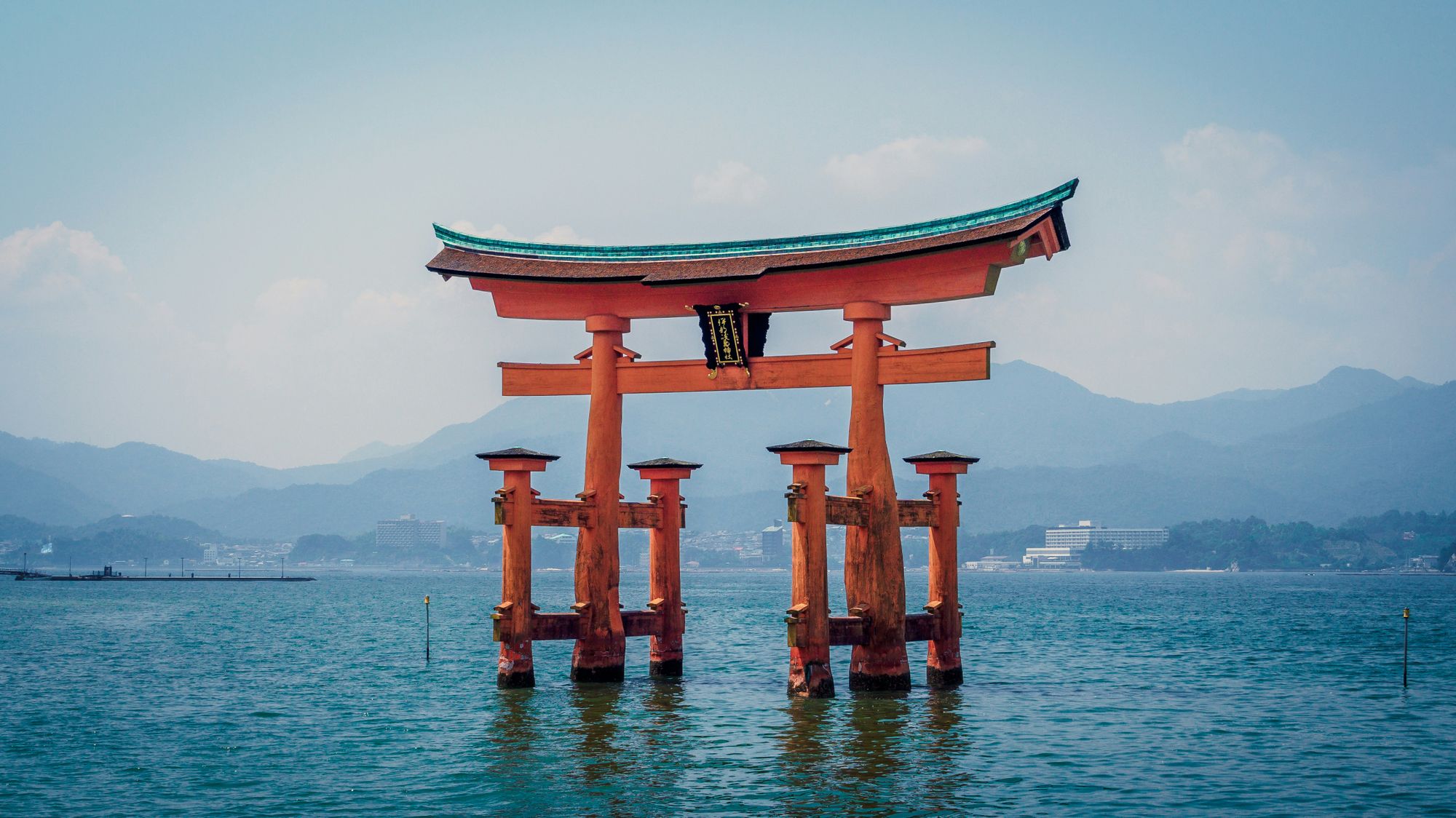Honouring the Kami Within: Exploring Direct Cremation in Shinto

Shinto, the indigenous religion of Japan, emphasizes a deep respect for nature and the interconnectedness of all living things. Following the loss of a loved one, Shinto rituals focus on purifying the spirit (mitama) and facilitating its peaceful transition to the kami (spirits) realm. Traditionally, elaborate burials are the norm. However, the modern world presents new considerations, and direct cremation, a simpler and faster approach, is gaining some traction within Shinto communities.
This blog post explores direct cremation in the context of Shinto beliefs and practices, examining its compatibility with core tenets and how companies like Eirene can help facilitate a respectful farewell aligned with Shinto principles.
Finding Harmony with Nature: Traditional Shinto Funeral Practices
Shinto funeral practices (songen) emphasize cleansing the deceased's spirit and ensuring a smooth passage to the kami realm. Here's a simplified breakdown of the traditional process:
- Preparation: The body is washed and dressed in white robes. A wake (tsuya) is held where family and friends pay their respects.
- Purification Rituals (Ōharae): A Shinto priest performs purification rituals to cleanse the body and surrounding area.
- The Funeral Procession: The body is carried in a simple casket to a designated Shinto shrine or cemetery.
- The Burial: The body is buried, with rituals and offerings made to the kami to guide the mitama (spirit)
- Post-Burial Observances: Mourning rituals are observed for set periods, with visits to the grave to offer prayers and maintain the burial site.
Shifting Sands: Examining Reasons for Direct Cremation
Despite the significance of traditional burial rituals, some Shinto families are considering direct cremation for various reasons:
- Urbanization and Busy Lifestyles: Modern life can make it challenging to fulfill elaborate rituals, especially for geographically dispersed families.
- Financial Considerations: Traditional burials and funeral homes can be expensive, and direct cremation offers a more affordable alternative.
- Environmental Concerns: Land scarcity in Japan makes burials less practical, and direct cremation can be a more environmentally conscious option.
Theological Considerations: Balancing Tradition and Modernity
Shinto beliefs emphasize respect for the deceased and the natural world. Here's how direct cremation can be incorporated respectfully:
- Focus on Purification: The focus remains on purifying the mitama (spirit) through pre-cremation rituals (Ōharae) performed by a Shinto priest.
- Respect for the Body: Even with direct cremation, the body deserves respectful handling. Eirene prioritizes ethical and legal cremation procedures, ensuring the process adheres to all guidelines.
- Seeking Guidance from a Shinto Shrine: Consulting with a Shinto priest is crucial. Discuss your wishes and concerns to find a path that balances tradition with modern considerations. They can guide you on incorporating purification rituals and offerings even within a direct cremation framework.
Eirene: A Partner in Respectful Direct Cremation
Cremation service providers like Eirene can be valuable allies in honoring your wishes while respecting Shinto traditions.
We offer:
- Ethical Cremation Processes: Eirene prioritizes ethical and legal cremation procedures, ensuring the process adheres to legal and regulatory guidelines.
- Transparent Communication: Open communication allows you to discuss your specific needs and preferences with Eirene, ensuring all your requests are meticulously followed.
- Flexibility for Post-Cremation Ceremonies: Eirene understands the importance of post-cremation rituals for purification and offerings. We can work with you to ensure the cremated remains are available for these observances at a Shinto shrine.
Planning a Respectful Farewell with Direct Cremation
Even with direct cremation, creating a meaningful experience that honors your loved one is possible:
- Purification Ceremony (Ōharae): Organize a gathering of family and friends for a purification ceremony led by a Shinto priest to cleanse the spirit.
- Offerings to the Kami: Make offerings of food, water, or symbolic items at a Shinto shrine, following guidance from a priest.
- Disposition of Ashes: Following the cremation, discuss respectful options for the ashes with your family and the Shinto priest. These could include burial in a designated plot at a cemetery or scattering them in a natural setting, mindful of local regulations.
Finding Solace in Nature and Ancestral Connection
Shinto emphasizes living in harmony with nature and respecting the spirits of ancestors (kami). Following the loss of a loved one, focusing on nature, performing purification rituals, and making offerings can be a way to find solace and honor the mitama's (spirit) transition to the kami realm.
Additional Considerations
- Denominational Variations: There may be slight variations in practices between different Shinto sects. Consulting with a priest from your specific Shinto tradition ensures you adhere to the practices observed in your community.
- Open Communication is Key: Open communication with your family, Shinto priest, and the Shinto community is crucial throughout the process. Discuss your preferences, concerns, and how direct cremation can be incorporated respectfully within the framework of your faith.
Resources
- Shinto Info: https://internationalshintofoundation.org/
- Kokugakuin University Encyclopedia of Shinto: https://d-museum.kokugakuin.ac.jp/eos/
Remember, Eirene is Here to Help
The loss of a loved one is a deeply personal experience. Eirene understands the importance of navigating this difficult time with sensitivity and respect. We are committed to providing support and guidance throughout the direct cremation process, ensuring it aligns with your wishes and the core tenets of your Shinto faith.
At Eirene, we believe that end-of-life planning should be comforting, transparent, and dignified. Too often, families struggle with the chaos, opacity, and expense of conventional funeral arrangements. We envision a better way - one centered on the belief that the end of life deserves as much beauty, grace, and meaning as the moments that came before.
May you find peace and comfort during this difficult time.




